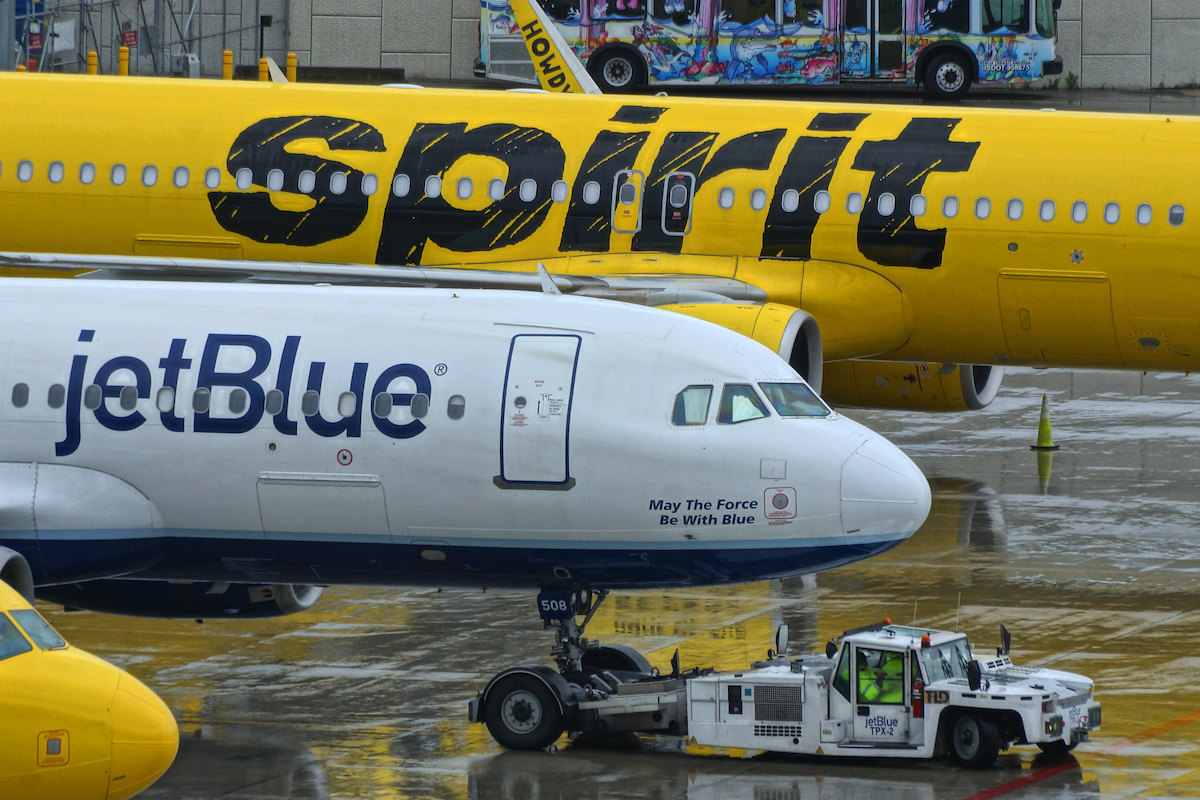JetBlue May Try to Terminate Merger With Spirit

Skift Take
The New York-based carrier said it believes it can end the merger agreement with Spirit airlines on or after January 28.
Jetblue said Friday it may back out of its merger with Spirit Airlines, after a federal judge blocked the $3.8 billion deal last week.
The New York-based carrier said in a filing that it informed Spirit that the merger agreement may be terminated on or after January 28 and that it may not be able to meet all the conditions required to close the agreeme

